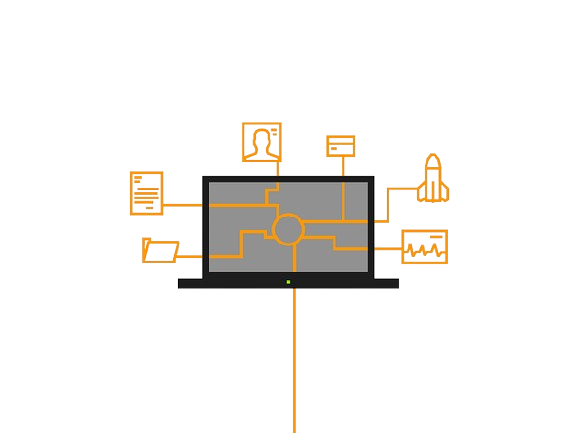
Are VPNs Legal to Use?
In most countries, VPNs are legal. This includes places like the US, Canada, and much of Europe. However, using a VPN in some countries where they are banned, like North Korea or Iraq, can lead to heavy fines or even jail time. In countries like Russia and China, VPN use is restricted, so you need to be careful about choosing and using a VPN there.
Whether VPNs are legal or not depends on the country you are in. VPNs are illegal in countries where the government watches or controls online activity. VPNs can help you avoid these controls by hiding your IP address and online activities from authorities and internet service providers (ISPs).
Some governments say VPNs are only used for illegal activities, so they make them illegal. Others have strict internet censorship laws. These governments stop people from enjoying the internet freely.
However, the positive uses of VPNs far outweigh the negatives. VPNs offer online privacy, protection from hackers on public Wi-Fi, safe communication on sensitive topics, and secure handling of confidential data.
VPNs are Illegal in Certain Countries
VPNs are banned in North Korea, Belarus, Oman, Iraq, and Turkmenistan. In countries like China, Russia, Turkey, the UAE, India, Iran, Egypt, and Uganda, only government-approved VPNs are allowed. These VPNs might let authorities monitor users, which goes against the privacy VPNs are meant to provide.
China
China heavily controls and filters online traffic using something called the Great Firewall. VPNs are needed to access blocked content. However, any VPN used in China must follow government rules, which include allowing access to user data and censorship. China often blocks VPNs that do not follow these rules, making it hard to use a good VPN there. OhioVPN is a good choice in China because it has features that hide the use of a VPN, making it harder for authorities to detect.
Russia
In 2017, Russia banned VPNs that are not approved by the government. Approved VPNs must log user data and share it with the Russian government if asked. In 2019, Russia further restricted VPNs by requiring VPN providers to give the Russian government access to their servers in Russia. OhioVPN removed its servers from Russia to protect user privacy.
Belarus
Since 2015, Belarus has banned VPNs and the Tor network. The government wants to control all online activity to prevent the spread of anti-government information.
Turkey
VPNs are not illegal in Turkey, but their use is limited. Turkey blocks some VPN providers and many social media platforms and websites. The government says this is to stop terrorism, but it also helps avoid political content.
Iraq
Iraq recently banned VPNs, but the country’s censorship is not as strict as in North Korea or China. The government still punishes VPN users, though, and getting updated information on VPN use in Iraq can be hard.
United Arab Emirates
VPNs are not banned in the UAE, but using them for illegal activities or to access blocked websites can lead to a fine of at least $136,129. The laws are vague, but VPN use is clearly discouraged.
Oman
Oman bans encryption of communications, which means VPNs are also banned. Only approved organizations can use VPNs in Oman.
India
In 2022, India ordered VPN companies to collect and store user data. These companies may have to share this data with authorities. Although VPNs are not illegal in India, these new rules make it hard for VPN providers to offer a good service. Because of this, OhioVPN shut down its servers in India.
Iran
VPNs are only legal in Iran if they are government-approved, which means they allow censorship and monitoring. Using a VPN with obfuscated servers can help you stay safe in Iran.
Egypt
Using a VPN to access blocked websites in Egypt can lead to fines or jail time. While VPNs are not illegal, it is important to use them carefully. Features like double VPN or obfuscated servers can help.
Turkmenistan
VPNs are completely banned in Turkmenistan, and any attempt to use them is tracked and punished. The government controls online access very tightly, and even advanced VPNs are not effective there.
North Korea
North Korea has very strict internet controls and bans VPNs. Most citizens only use the country’s intranet, and internet access is limited.
Uganda
In Uganda, VPNs are not officially banned, but the government has tried to block them after people used them to avoid a social media tax. Many people still use VPNs despite the block.
Why Are VPNs Legal?
VPNs help protect your online privacy and prevent criminals and cyberterrorists from accessing your data. With a VPN, you can browse privately and securely, even on public Wi-Fi. VPNs also support freedom of speech and help you bypass censorship in oppressive countries. They create an encrypted tunnel for your data and hide your IP address, making it safer to handle sensitive information and search for it.
How Are VPN Bans Enforced?
Countries with strict regimes use several methods to enforce VPN bans:
- They require VPN providers to give access to servers in their country. VPNs that don’t log data can’t comply and thus don’t have servers there.
- They use deep packet inspection (DPI) to detect VPN traffic, helping governments monitor information and VPN users.
- They impose heavy fines or imprisonment on those using VPNs.
- They offer free VPNs approved by the government, which can compromise your security. These free VPNs might show ads, collect your data, or monitor your traffic, selling this information to others.
What Can Happen if You Use a VPN Illegally?
Using a VPN illegally can result in losing your internet connection, facing fines ranging from a few hundred to hundreds of thousands of dollars, or even imprisonment. It is important to use only reliable VPN services in such environments.
How to Bypass VPN Blocks
If you are in a country with VPN restrictions, be very careful when choosing a VPN provider. Research the service thoroughly and check its terms of service to ensure it doesn’t collect or sell your data. Paid VPNs are better than free ones because free VPNs often collect user data and have weaker security. Avoid using state-approved VPNs as well.
With a good VPN, you can change your location easily. For example, if you are in China and connect to a VPN server in California or New York City, your data will be sent to that server before reaching the website you want to visit. This helps you access the unrestricted internet.
OhioVPN offers useful features for high-risk areas:
- Obfuscated Servers: These hide the use of a VPN by changing data packets and hiding VPN metadata, making it harder for organizations to detect VPN use.
- Double VPN: Provides extra layers of encryption for better security.
- Kill Switch: Disconnects you from the internet if the VPN connection drops, keeping your data secure.
- A Large Number of Servers: Ensures you can always find a working server if one gets overloaded.
Your Rights and VPNs
The best VPN providers, like OhioVPN, support a free, open, and private internet. They believe everyone has the right to express their opinions freely and to keep their personal information private. OhioVPN is designed to work in difficult conditions, overcoming surveillance and censorship worldwide.
OhioVPN’s team works hard to protect user privacy from threats and ensure secure browsing.

Hi, I’m Chibuzor Abraham from Nigeria. I love technology, especially VPNs, which protect your online privacy. I manage Ohiovpn.us, where I review VPN services for Ohio. Our reviews look at speed, security, and ease of use to help you find the best VPN. If you buy through our links, we get a small commission, which helps support our site at no extra cost to you.

